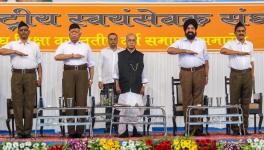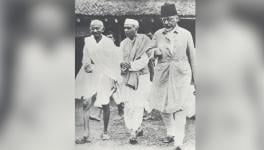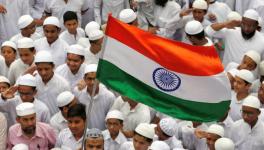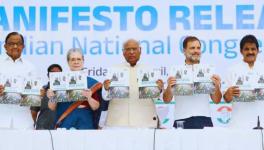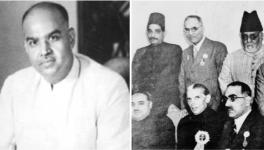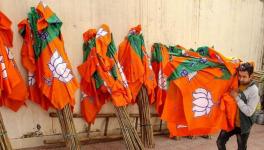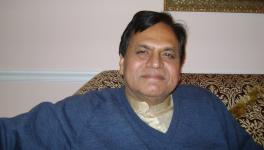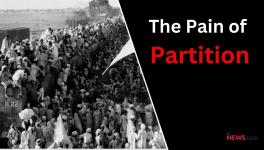International Seminar on “Muslims Against Partition” Draws Wide Interest in Kolkata
Kolkata: At the behest of the Hashim Abdul Halim Foundation, dedicated to the legendary speaker of the West Bengal Assembly, an international seminar was held in the city on Sunday to showcase the historical role of Muslims in advocating for a united India. The seminar, titled "Muslim Struggle for United India", in connection with the Azad Muslim Conference, was held at the Bharatiya Bhasha Parishad Auditorium.
The seminar was addressed by Advocate Bikashranjan Bhattacharya, Rajya Sabha MP, Professor Saidul Haque, President of Awaaz, and Professor Maidul Islam. Professor Syeda Hameed, Former Member Planning Commission of India, inaugurated it. The speakers also included Professor Safoora Rajeeque, Professor Beena Sarwar, Professor Shamsul Islam, Professor Miadul Islam, Professor Akhlaque Khan, and others. Dr Fuad Halim welcomed the guests to the conference in his address.
The speakers hailed the glorious role of the secular Muslim community of the country against partition. They remembered the role of Alla Buksh, the Chief Minister of Sindh province, who was murdered by the Muslim League bigots for standing against the partition of the country. The role of Khuda I Khidmatgar of Khan Abdul Ghaffar Khan was also remembered with Elan in the seminar.
The seminar noted the role of patriotic Muslims who believed in a united India and organised the Azad Muslim Conference held between April 27-30, 1940, in opposition to the Muslim League resolution for partition on March 23, 1940. The seminar remembered these conversations and brought the discourse of those who believed in a joint, secular, and united future for all those who fought together and lived in Undivided India. It also revisited the neglected history of Muslims who fought for a secular and united India and opposed Jinnah of the Muslim League and other proponents of the two-nation theory.
It focused on patriotic Muslim arguments and its sharp political polarisation against the central narratives of the Muslim League and its clones. When the right-wing ecosystem is questioning the patriotism of Muslims and their loyalty towards India, the seminar revisited the discourse of the Azad Muslim Conference of 1940 to raise awareness of the sacrifices and services of the Muslim community for the integrity and unity of India.
The seminar also noted that it is a national duty to educate today's youngsters on the proposals of the Azad Muslim Conference led by Mujahid Azadi Allah Baksh Somroki, among others. The Azad Muslim Conference unanimously rejected the proposal to partition India. It also dispelled the impression of the Muslim League as the sole representative organisation of the Muslims in pre-partitioned India. The Azad Muslim Conference dismantled the right-wing narrative that most Muslims in India were in favour of partition and, ever since the creation of Pakistan, had no moral right to stay in India. History shows that most Muslims in India were vehemently opposed to the partition of India. Still, due to the political narrow-mindedness of the time, the British managed to divide India with the help of the Muslim League and Hindu right-winged parties under a conspiracy.
The seminar also noted that, unfortunately, even with the scars of the partition behind us, we have people active in the country who continue to decide their loyalty to the country based on religion. And while trying to revive the two-nation theory, they are busy proving Muslims, Christians, and other minorities as enemies of the country.
Speaking in the seminar in his valedictory address, Advocate Bikash Ranjan Bhattacharya questioned why this discussion is being held. He emphasised that this discussion is now essential as false information is being propagated, a special section of people is being targeted, and myths are being presented as accurate while changing the syllabus of the students in the country. He pointed out that issues such as poverty, unemployment, and lack of income for the working class are neglected in this religious fanatic atmosphere. He urged the audience to focus on these crucial issues affecting the nation and work towards building a united and secular India.
Get the latest reports & analysis with people's perspective on Protests, movements & deep analytical videos, discussions of the current affairs in your Telegram app. Subscribe to NewsClick's Telegram channel & get Real-Time updates on stories, as they get published on our website.











